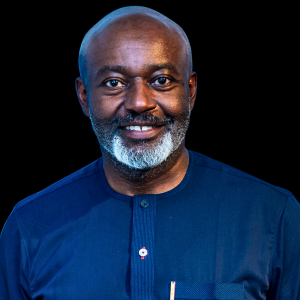Board Chair and Chief Executive of the NMF, Excellencies, distinguished guests, ladies and gentlemen,
It is a profound honour to join you today at the 23rd Nelson Mandela Annual Lecture in celebration of the legacy of Nelson Mandela—an icon whose wisdom, vision of justice, dignity and human solidarity continues to inspire our world.
This year’s theme, “Enhancing Peace and Global Cooperation”, could not be more timely or relevant.
As the world marks the 80th anniversary of the United Nations, we are called to renew the very principles that gave birth to the UN in 1945: faith in dialogue, respect for human life and dignity, and the conviction that our shared humanity is stronger than the forces that divide us.
In his recent address to the General Assembly, Secretary-General António Guterres urged world leaders to choose cooperation over fragmentation and reclaim the ethical foundations of multilateralism—reminding us that peace requires dignity, justice, and inclusion for all.
He called on the international community to put people before geopolitics, and to see in each crisis not an excuse for despair, but a call to rebuild trust and solidarity.
The need for such renewal is evident in every corner of our world—from the devastation in Gaza and Sudan, to the climate emergency, rising inequality, and the growing divides within and between societies.
It is why we must redouble our efforts for peace grounded in international law and compassion for every human being.
We are therefore looking forward to this year’s lecture is delivered by Ms. Francesca Albanese, the independent United Nations Special Rapporteur on the Occupied Palestinian Territories.
Her presence here today is both timely and deeply symbolic, as we reflect on the enduring humane legacy of Nelson Mandela and the humane values that continue to guide the United Nations.
Special Rapporteurs, as independent experts, play an indispensable role in amplifying truth, accountability, and the lived realities of those most affected by injustice.
Their work exemplifies the spirit of principled, independent thought that the late President Mandela so powerfully embodied—a commitment to speak truth even when it is uncomfortable, and to do so in the service of peace and humanity.
As the United Nations family, we have long cherished our deep and growing collaboration with the Nelson Mandela Foundation.
Together, we have celebrated Madiba’s legacy not only through dialogue, but through action—including the publication of the two Mandela Books on the Sustainable Development Goals, which serve as a powerful call to action for individuals, governments, civil society, and business.
We are honoured that Former Secretary-General Kofi Annan, Secretary-General António Guterres, and Deputy Secretary-General Amina Mohammed have previously delivered this lecture, underscoring the United Nations’ deep respect for this platform and its convening power.
Ladies and gentlemen,
The journey toward peace and cooperation is not an abstract one—it is shaped by what each of us chooses to do.
The path forward demands bold, intentional and unified action through the following:
Reaffirming our commitment to multilateralism by rebuilding trust and reinvigorating our institutions to respond to the realities of the world we live in.
Choosing dialogue over division in our communities, our politics, and our hearts—by protecting civic spaces and investing in prevention through education.
Championing inclusion and justice-centred action by safeguarding the rights of women, youth, and marginalised voices who carry the seeds of peace, innovation and transformation.
Reigniting African agency and global solidarity, recognising that peace anywhere strengthens peace everywhere.
South Africa and the continent of Africa must play their full role as co-creators of the future we wish to see and deserve to live.
In the spirit of Mandela, let us commit ourselves to humanity in action.
We must invest in peace, uphold the rights of the vulnerable, mobilise collaboration across borders, and ensure that our global system serves everyone—not just a few.
Let us remember: peace is not inevitable—it is a choice.
Global cooperation is not optional—it is essential.
And justice is not passive—it must be pursued.
Let this Lecture be a clarion call—for shared responsibility, courageous leadership, and unwavering dedication to building a world worthy of Mandela’s hope and our collective future—a future we must walk toward together, with courage, compassion, and conviction.
I thank you.



